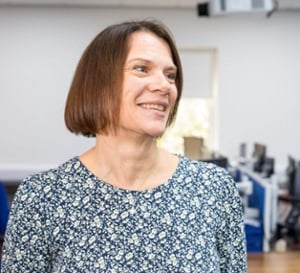
In an increasingly digital world, it is easy for businesses to buy in services from outside the UK. Consultancy services, legal services, accountancy services, translation services, design services online advertising and online digital support are all examples of services which, when provided by a supplier outside the UK, are not subject to UK VAT.
It is common for invoices on which no VAT is charged to be processed without anyone considering the VAT implications.
What is the VAT Reverse Charge?
UK VAT registered businesses receiving invoices for services provided by overseas suppliers are required to account for UK VAT on their VAT return under the reverse charge mechanism.
The VAT is calculated at 20% and included in box 1 of the VAT return and can be reclaimed as input tax in box 4 of the same VAT return if the business makes wholly taxable supplies (standard rated, reduced rated and/or zero rated).
Businesses with both taxable income and exempt income are referred to as being ‘partially exempt’ and may only be entitled to reclaim a proportion of the VAT or in some cases, none at all.
Partially exempt businesses can reclaim VAT on expenditure which generates taxable income but cannot reclaim VAT on expenditure which generates exempt income. Expenditure relating to the business as a whole can be reclaimed in part.
It is, therefore, important that partially exempt businesses correctly account for reverse charge VAT and ensure that the correct amount of VAT is reclaimed as input tax.
VAT Reverse Charge examples – The Sofology case
One of the most common services subject to the reverse charge is online advertising.
Many businesses advertise on Google, Amazon, LinkedIn and Facebook, all of which provide their services from outside the UK and do not charge UK VAT.
A recent First Tier Tribunal case, Sofology Ltd and another vs HM Revenue and Customs concerns online advertising and demonstrates the importance of correctly identifying what income a reverse charge service relates to and reclaiming the correct amount of VAT in connection with that service.
What happened at the Sofology First Tier Tribunal?
Sofology makes taxable supplies of sofas and exempt supplies of insurance intermediary services. Customers buying a sofa from Sofology are offered the option to purchase insurance at the time of their purchase. Sofology receive commission for every Sofashield insurance policy they sell. This commission is exempt from VAT.
- Sofology advertise on Google and receive invoices from Google (Ireland) which are subject to the reverse charge.
- Sofology correctly accounted for VAT as output tax and reclaimed the same amount of VAT as input tax on the basis that the adverts relate to the sale of sofas.
- HMRC disagreed and argued that either there was a direct link between the advertising and the insurance intermediary services, or the advertising was a general overhead of the business.
- Either way, HMRC believed the VAT could not be reclaimed in full and issued an assessment to recoup what they ascertained was incorrectly reclaimed VAT.
- Sofology appealed to the First Tier Tribunal to get the assessment withdrawn and their appeal was successful. The Tribunal decided that the link between the advertising and the insurance intermediary services was an indirect link whereas the link between the advertising and the sale of sofas was ‘direct and immediate’.
This is a logical conclusion, since insurance policies are an optional extra to sofa sales, not a primary product in their own right. Therefore, Sofology were correct in attributing the VAT on advertising to the taxable supplies of sofa sales and reclaiming the VAT in full.
The Sofology case is a reminder that not only does VAT have to be accounted for on services received from suppliers outside the UK but that this VAT also must have a direct link to supplies on which VAT is charged if it is to be reclaimed in full.
Related articles

Lynne Gill
My area of expertise is land and property transactions but I have extensive knowledge of both domestic and international VAT and I love complex VAT queries. I have an Honours degree in Business Studies and a VAT legal and technical qualification from the Institute of Indirect Taxation.
View my articlesTags: VAT, Business Taxes
